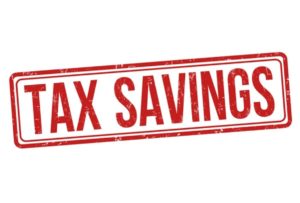
Image from www.freepressjournal.in
If you own a home that greatly appreciated in the last few years, you might worry about the tax burden it would cause when you sell.
Even with the primary residence capital gains exclusion of $250,000 for single filer and $500,000 for joint filers, you could owe a significant amount in taxes. Fortunately, there’s a way to avoid it. Here’s how.
Converting your Property to a Rental Property
The first step in double dipping with the 1031 exchange and home sale exclusions is to convert your primary residence to a rental property. According to the IRS, your property must be a rental property for 2 years for this to work.
Don’t worry, though. You can still take the principal residence as long as you owned the property and lived in it for 2 of the last 5 years.
Taking the Principal Residence Exclusion
Your next step and your first step according to the IRS is to take the principal residence exclusion. This is good news. Here’s why.
Any money you make on top of the exchange of your principal residence is only taxed if it exceeds the full amount of your allowed exclusion.
It’s like exchanging your principal residence for another investment property and paying little to no taxes on the gains.
An Example
It helps to look at an example of how this might work.
You own a property worth $2 million with a basis of $300,000. You have earnings of $1.7 million. You converted the property to an investment property for the last two years but lived in it prior to that so you can take the primary residence tax exclusion.
You exchange the property for a multifamily property that you use as an investment. You acquire the property for $2 million.
You don’t pay taxes on the first $500,000 because you are married filing jointly and you lived in the property 2 of the last 5 years. You can also defer the taxes on any gains outside of that because you exchanged the property for another property of the same value.
If you keep the property long-term, aka as long as you live, you’ll never pay taxes on the gains. Your beneficiaries won’t pay taxes on it either because of the death tax stepped up basis. This means the value of the property is ‘stepped up’ to the value on the date of your death.
If your beneficiaries sell the property shortly after inheriting it, they’ll pay little to no capital gains tax on what was a huge investment for you and should have been a large liability.
If you have any questions about how this works or if it applies to you, let’s connect today and we’ll help you understand
